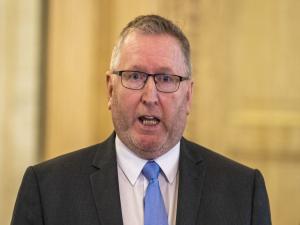
By David Young, PA
Ulster Unionist leader Doug Beattie has insisted the party is back and can once again take the first minister’s job at Stormont.
In his first speech to conference as leader, recently appointed Mr Beattie was bullish about the UUP’s chances in the next Assembly poll, claiming the party was growing in self belief and had momentum.
“Voters are fed up with the status quo, they no longer want a DUP Sinn Fein coalition that spends their time poking each other in the eye,” he said.
“They are hungry for a positive, forward-looking alternative and the Ulster Unionist Party can provide that alternative.”
Mr Beattie, a decorated Army veteran, replaced Steve Aiken in the summer with a pledge to promote a progressive brand of unionism, and he has signalled an intent to shift the party towards the centre ground of Northern Ireland politics.
In his speech to party faithful in Belfast on Saturday, he said his pro-Union vision was of people in working together “regardless of their religion, gender, colour, sexual orientation, background or culture”.
The Upper Bann MLA also called for reform of Stormont’s structures, urging a return to the “factory settings” of what was initially envisaged in the Good Friday Agreement that the UUP co-designed in 1998.
He denounced the “Frankenstein” changes to the powersharing arrangements secured by the DUP and Sinn Fein in the 2006 St Andrews Agreement, saying it had created a dysfunctional system of government that enabled those two parties to govern by “mutual veto”.
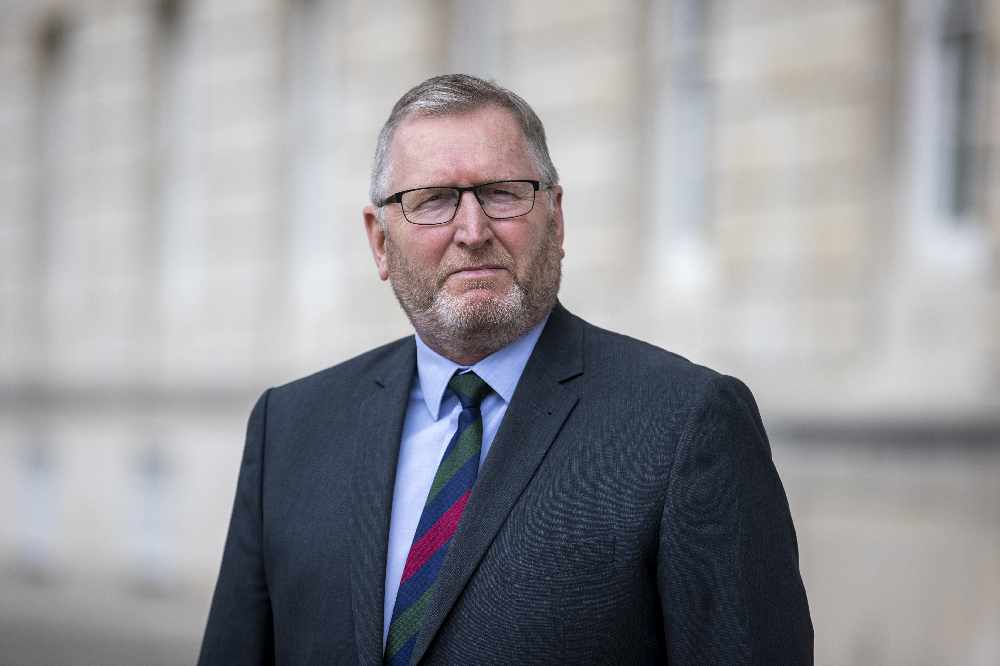
Ulster Unionist leader Doug Beattie
The 2006 reforms changed how the first and deputy first ministers were appointed, ditching the requirement for the nominees to secure support from across the Assembly chamber and replacing it with a system whereby the largest unionist party nominated one minister and the largest nationalist party nominated the other.
He said a mandatory coalition involving Stormont’s five main parties “no longer delivers good government”.
“We need to create a working powersharing government with a working powersharing opposition to hold them to account,” he added.
“This will put the electorate in the driving seat and allow them to vote out those not up to the role and vote in those with a better vison for the future.”
Mr Beattie continued: “The people endorsed the Agreement in 1998. It should have evolved with society as it matured and developed. Now we have a situation where society has moved far beyond what Stormont is delivering.”
The UUP leader used his speech to again reject calls from DUP leader Sir Jeffrey Donaldson for co-operation at the next election to maximise the pro-Union vote in opposition to Brexit’s Northern Ireland Protocol.
Countering another argument for greater unionist co-operation on voter transfers, he dismissed as “nonsense” the claim that Sinn Fein would secure greater influence at Stormont if it emerged as the largest party and took the first minister’s job.
Mr Beattie made clear that there was no legal difference between the first and deputy first minister.
“There will be no pacts, there will be no standing aside, we will stand on our own two feet and promote our vison for a better Northern Ireland. We will not be defined by the past,” he said.
Mr Beattie added: “If other parties want voters transfers then they need to work for them. It’s not my job to make the case for others, I do not own these votes, I work for them. It’s called trusting the electorate.
“The electorate are bored of being told what to do and want us to listen more.”
On the contentious Brexit protocol, Mr Beattie called the DUP “naive and short-sighted”, accusing the party of facilitating the problem by mishandling the influence it secured at Westminster in the 2017 general election.
He said his party had opposed Brexit and been continually trying to find solutions to issues created by the protocol and had not being involved in the “champagne receptions and backroom deals done by others who had influence at the time of the negotiations”.
Mr Beattie concluded his speech with a confident prediction on the party’s potential at the next election.
“The tide is turning. We have self-belief. And that self-belief is contagious. The public are picking up on it and tuning back into the Ulster Unionist Party,” he claimed.
“We’ve shown what we can do in Government during even the most challenging of times. Imagine what we could do with more ministers. Imagine what we could do as first minister.
“That’s where we are aiming for, conference. Because we can do it.
“We have the talent, the commitment, the vision. We have the momentum.
“It’s going to be hard work. Between now and polling day we can leave no-one in any doubt about who the Ulster Unionist Party are and what we stand for.
“Let people know that there is an inclusive, confident, forward-looking Ulster Unionist Party who are ready to lead unionism again with their support.
“I know that each of you know that Northern Ireland deserves better and that given the chance you will deliver on a vision for better lives for all the people here.
“We are confident unionists, we are positive unionists, we are inclusive unionists, we are welcoming unionists. We are the Ulster Unionist Party and we are back."


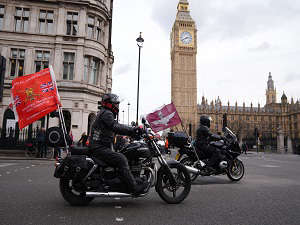 Bikers to descend on Westminster for veterans protest against Legacy Act repeal
Bikers to descend on Westminster for veterans protest against Legacy Act repeal
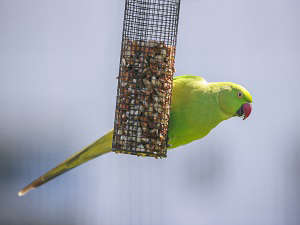 Guidance sought over future of colourful parakeets in Belfast park
Guidance sought over future of colourful parakeets in Belfast park
 Woman released after questioning over pipe bombs in Co Down
Woman released after questioning over pipe bombs in Co Down
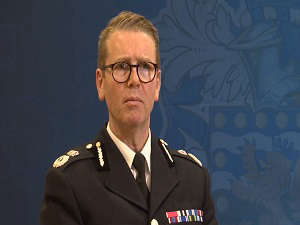 Suspended chief constable will not be prosecuted over alleged sexual offences
Suspended chief constable will not be prosecuted over alleged sexual offences
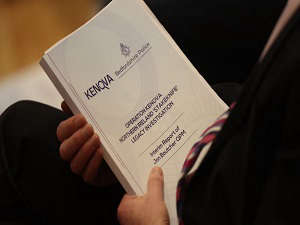 MI5 files not deliberately withheld from Stakeknife probe, review concludes
MI5 files not deliberately withheld from Stakeknife probe, review concludes